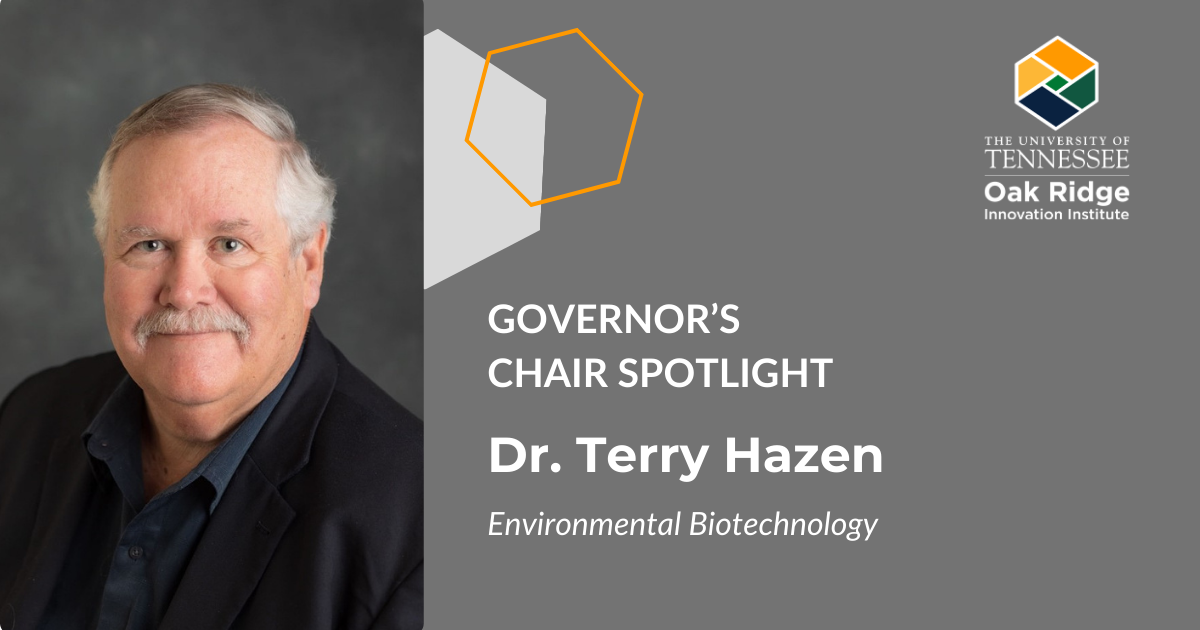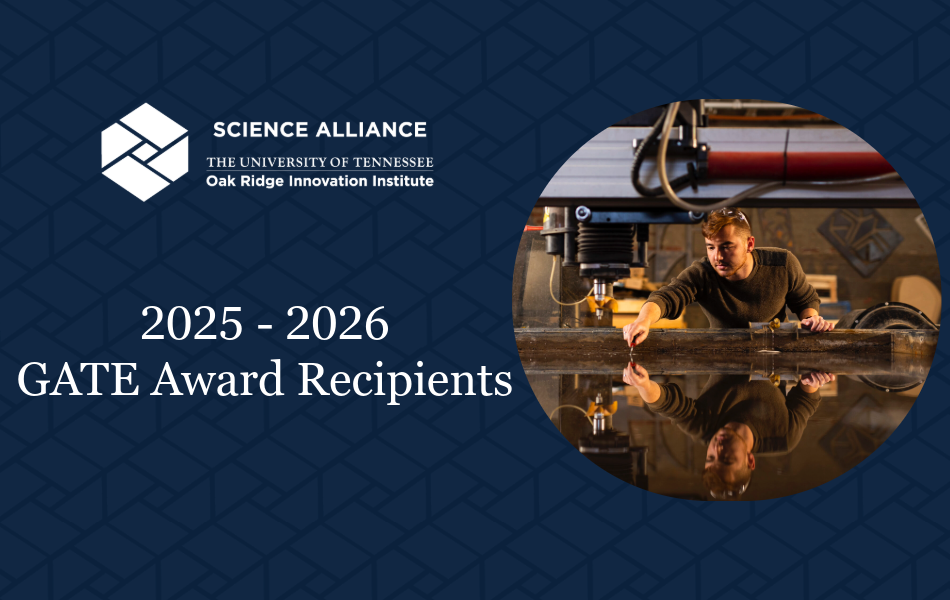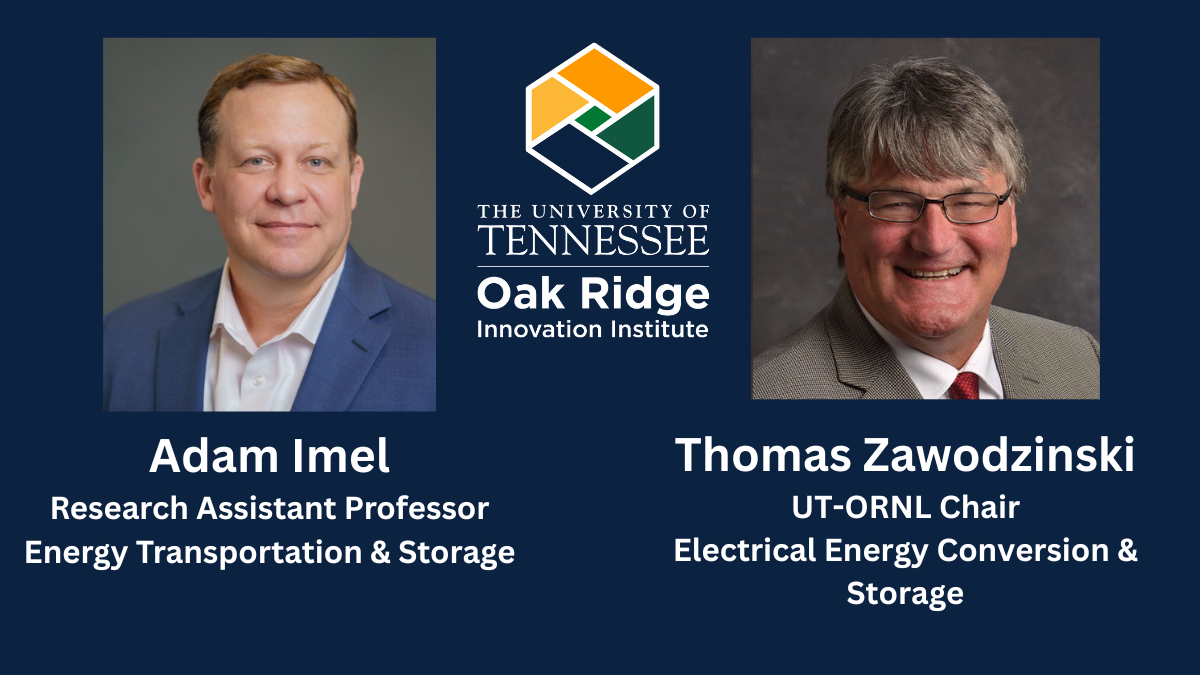From studying the cause of alligator illnesses to providing expertise in the aftermath of the Deepwater Horizon oil spill to monitoring campus wastewater for the Covid virus, Terry Hazen has always been fascinated by the ramification of stressed environments.
Hazen was appointed as the UT-ORNL Governor’s Chair for Environmental Biotechnology when he came to UT in 2011. Hazen is one of 13 UT-ORNL Governor’s Chairs. Funded by the State of Tennessee, ORNL and UT, the program attracts renowned researchers from around the globe to Tennessee to broaden and enhance the unique research partnership that exists between UT and ORNL, and to serve as professors and mentors to UT’s up-and-coming STEM leaders. The prestigious Governor’s Chair program is led by UT and ORNL’s UT-Oak Ridge Innovation Institute, an organization that oversees and encourages UT-ORNL joint research, education and workforce development efforts.
A professor in the Department of Civil and Environmental Engineering, Hazen holds joint appointments in the Department of Microbiology and the Department of Earth and Planetary Sciences, and he works closely with the UT-ORNL Joint Institute for Biological Sciences and ORNL’s Biological Sciences Division. He formerly served as the director of UT’s Institute for Secure and Sustainable Environment (ISSE) and the ISSE’s Methane Center.
One of Hazen’s focuses is on how microorganisms can play a role in the remediation of industrial waste in bodies of water.
Before coming to UT, while working at Lawrence Berkeley National Laboratory, Hazen became involved in the lab-industry research partnership known as Joint BioEnergy Institute, as well as with the Energy Biosciences Institute funded by British Petroleum. That led him to highly commended work on Deepwater Horizon remediation, which included testifying before Congress.
More recently, Hazen shared his expertise in the wake of an oil spill triggered by the December 2021 volcano eruption in the Kingdom of Tonga in the South Pacific.
During the pandemic, Hazen and his research team helped control the spread of the coronavirus by monitoring the wastewater from the 45 residential buildings on campus.
While at the Berkeley Lab, Hazen co-founded the precursor to the Ecosystems and Networks Integrated with Genes and Molecular Assemblies (ENIGMA) program.
Now, he’s heading up an ENIGMA project looking at the S-3 Waste Disposal Ponds at the Y-12 National Security Complex. From 1951-1983, the ponds were used to dispose of waste fluid after nuclear reactor fuel rods were washed with nitric acid. The ponds were paved over, but the contamination has continued mixing with groundwater flowing under the site resulting in dangerously high concentrations of nitrates in the groundwater.
Hazen discovered years ago that the contaminated water hosts a thriving microbial community.
Funded by the Department of Energy, Hazen and his team are now operating the SubSurface Observatory (SSO), a grid of wells near the ponds, to study the microbes’ role in maintaining the high nitrate level. What they learn could be helpful in cleaning up other nuclear refinement sites, as well as agricultural areas where nitrate fertilizers are contaminating waterways.
Hazen, who grew up hunting and fishing at his family’s Lake Michigan cabin, pursued his love of nature by earning bachelor’s and master’s degrees in interdepartmental biology from Michigan State University. He earned a doctorate in microbial ecology from Wake Forest University.
Prior to UT, he worked in the University of Georgia’s ecology lab, studying environmental impacts that were killing fish and alligators at the Savannah River nuclear reservation; did environmental remediation for the Department of Energy and state organizations in Winston-Salem, N.C.; served on the faculty of the University of Puerto Rico where he did research in tropical rainforests; and worked at Savannah River National Laboratory and Lawrence Berkeley National Laboratory.
Hazen is a fellow of the American Academy of Microbiology and the American Association for the Advancement of Science. He has received two R&D100 awards and the Federal Technology Transfer Medal. In August 2020 he received the American Society for Microbiology Career Award for Environmental Research.
Hazen holds five patents on bioremediation that have been licensed by more than 50 companies and are being used worldwide.




